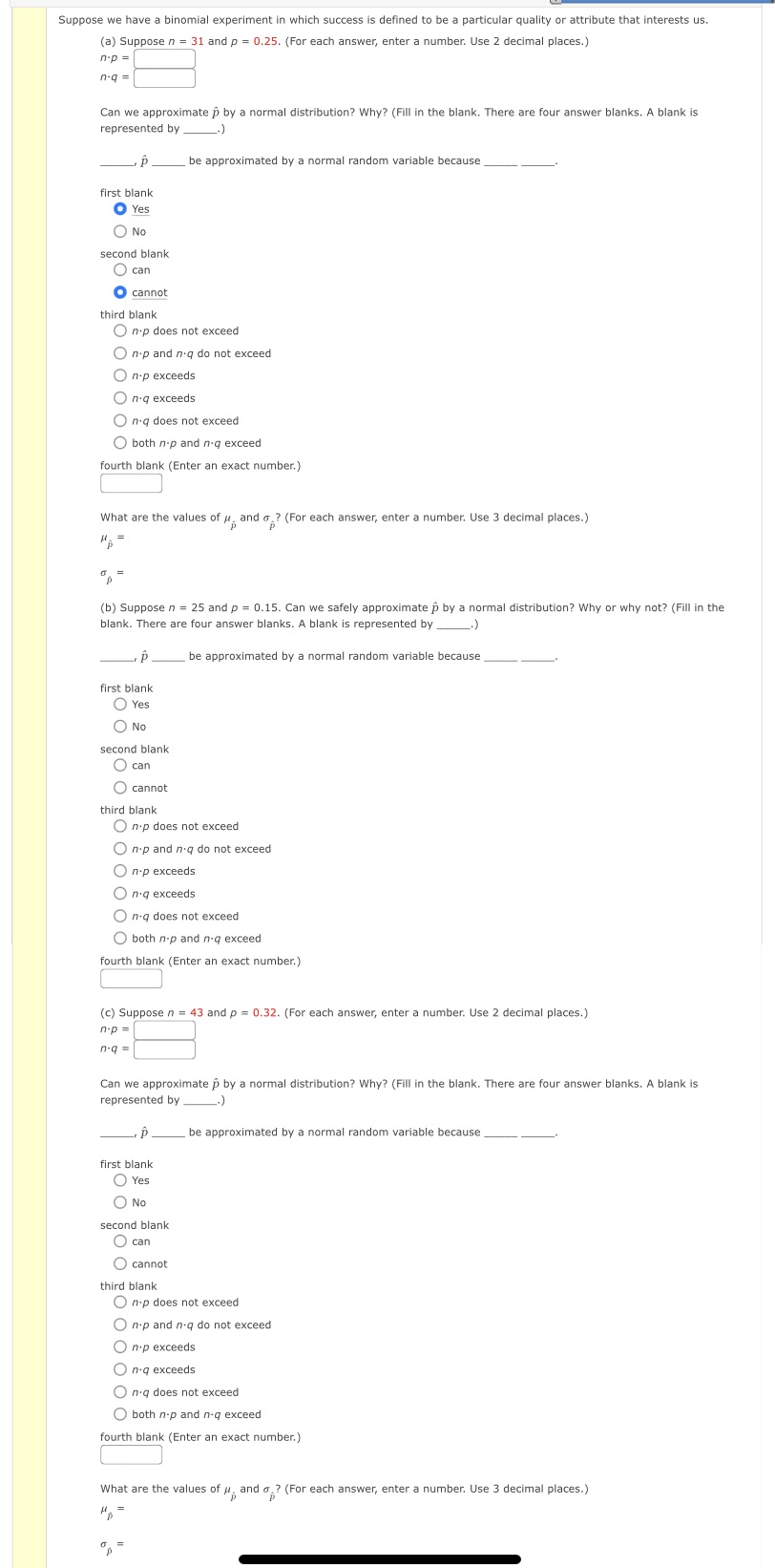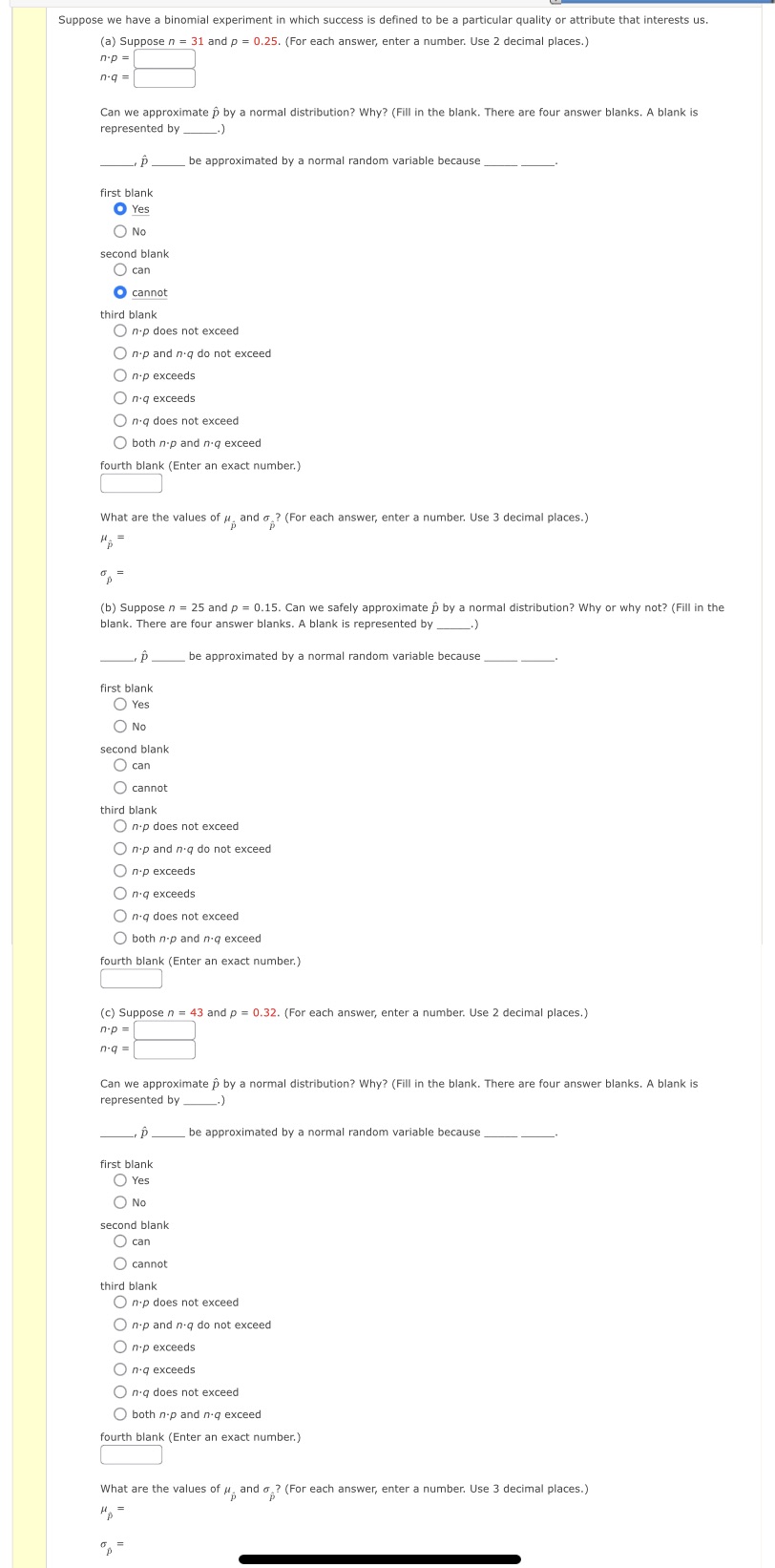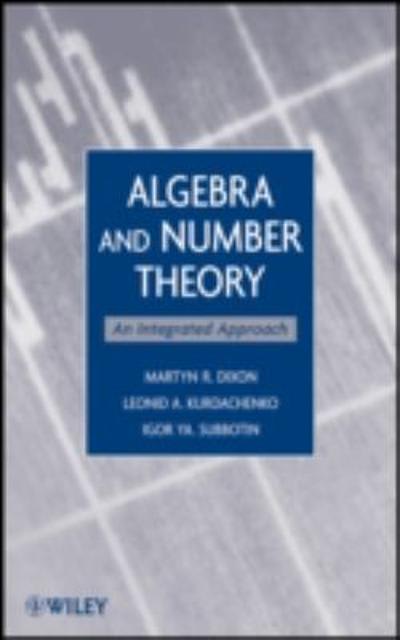Answered step by step
Verified Expert Solution
Question
1 Approved Answer
Suppose we have a binomial experiment in which success is defined to be a particular quality or attribute that interests us. (a) Suppose n =


Step by Step Solution
There are 3 Steps involved in it
Step: 1

Get Instant Access to Expert-Tailored Solutions
See step-by-step solutions with expert insights and AI powered tools for academic success
Step: 2

Step: 3

Ace Your Homework with AI
Get the answers you need in no time with our AI-driven, step-by-step assistance
Get Started


